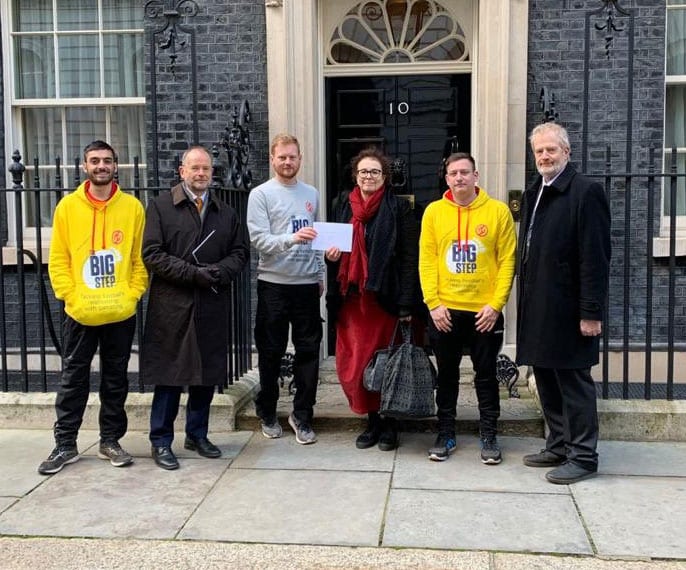BGC defends RG progress after call for sponsorship ban

The UK’s gambling industry has defended its commitment to responsible gambling after campaigners claimed in a letter to the Prime Minister that football's relationship with betting is at “saturation point”.
Michael Dugher, chief executive of the new standards body the Betting and Gaming Council (BGC), highlighted steps taken voluntarily by the industry after campaign groups Gambling with Lives and The Big Step called for a ban on gambling sponsorships in football and TV advertising.
These formed part of a series of demands delivered to 10 Downing Street on Wednesday (26 February).
The letter was handed over on Gambling with Lives’ ‘day of action’ after members from The Big Step completed a 100-mile walk to six different clubs with betting sponsors on their shirts.
As well as calling for an end to “predatory marketing”, including football sponsorship, the campaigners said they want the Government to introduce safety testing and classification of addictive industrialised gambling products and health warnings that gambling causes mental health problems that can lead to suicide.
Gambling with Lives wants a ban on gambling logos on any kit, an end to in-stadium advertising, and no sponsorship of any football league by operators.
In response, the BGC’s Dugher said the industry takes its responsibility to protect young people and those at risk of harm incredibly seriously.
“As part of our safer gambling commitments, our members have already introduced a ‘whistle to whistle’ ban on advertising during sport; substantially increased funding for research, education and treatment; implemented new ID and age-verification checks; ended any suggestion of exclusive rights to screen FA Cup games and will ban betting with credit cards,” he explained.
“We are determined to drive big changes across the betting and gaming industry. Millions of people regularly enjoy a flutter and do so safely and we will ensure that our standards are the highest in the world.”
However Gambling with Lives pointed out that new ID and age checks were required by the operator, as was the credit card betting ban. Increased funding for research, education and treatment, it said was “perpetuating a failed funding system”. This left the whiste-to-whistle ban, which it said was “a smart move for the big companies anyway”.
Gambling with Lives, which was set up by parents whose children have taken their own lives after developing a gambling addiction, said a recent survey by the Football Supporters' Association found that only 13% of fans would be happy for their club to be sponsored by a gambling company. They note that as many as 27 of the 44 clubs in England’s top two divisions feature a betting operator on their shirts.
The charity was this week represented at the House of Lords Select Committee into the Social and Economic Impacts of Gambling. After delivering the letter to Downing Street, members also attended a reception in Parliament which was addressed by Matt Hancock, the Secretary of State for Health and Social Care.
Founder Liz Ritchie, whose 24-year-old son Jack committed suicide in 2017, said: “Where are the warnings? A six-year-old knows that smoking kills, they should also know that gambling kills. The Gambling Commission says that warning the public of the danger of addiction and death from toxic gambling products is not their job – it’s the job of charities.
“But charities funded by the gambling companies say that they don’t warn people because they don’t campaign. So families need to help each other – research shows that up to 650 people every year die in the UK because of gambling.
“People think it’s the stress of financial debt that kills you – it’s not – gambling affects your mental health and can lead to suicide.”
